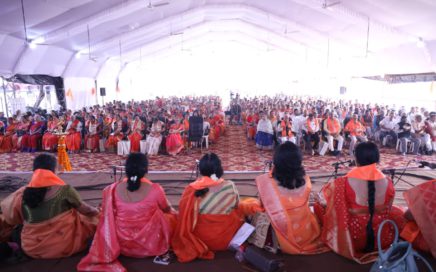Nagpur: In a disturbing trend that undermines the government’s push for safer and more natural childbirth, the Government Medical College and Hospital (GMCH), Nagpur, continues to record more Caesarean (C-section) deliveries than normal births, year after year.
Official figures obtained under the Right to Information (RTI) Act by activist Abhay Kolarkar expose a grim reality: Despite heavy spending on maternal care, C-section births have far outpaced normal deliveries, signalling a deep-rooted challenge in public maternity care practices.
Caesarean births dominate delivery data
In 2023, GMCH reported 4,349 Caesarean births, compared to 3,663 normal deliveries, about 18% higher. The divide only widened in 2024, with 4,162 babies born via surgery and just 3,342 through normal delivery, a 25% jump. By August 2025, the pattern continued, 2,027 Caesareans versus 1,758 normal births, marking a 15.29% gap and raising serious questions about delivery protocols in the state-run hospital.
What’s more alarming is that both Caesarean and normal deliveries have declined in absolute numbers, yet the share of surgical births keeps rising, a trend that health experts warn could have long-term implications for maternal health, recovery, and medical ethics.
Public health advocates have repeatedly cautioned that unnecessary Caesarean deliveries can expose mothers and newborns to additional risks, including post-surgery complications, delayed recovery, and higher healthcare costs. “The rising C-section rate reflects systemic issues, from staff convenience to hospital management pressures, rather than genuine medical necessity,” a senior gynecologist commented.
Other indicators show mixed trends
While the delivery data paints a worrying picture, other hospital metrics show improvement. In-patient admissions (IPD) increased from 36,798 in 2024 to 44,519 in 2025, while total deaths dropped from 6,625 to 5,146 during the same period. Stillbirths and maternal deaths also declined, hinting at better neonatal and obstetric care.
Expenditure and funding see sharp rise
RTI records further revealed that medicine procurement costs soared from Rs 8.20 crore in 2023–24 to Rs 11.63 crore in 2024–25, reaching Rs 14.42 crore by May 2025. In just two years, GMCH spent a staggering Rs 26.28 crore on medicines, reflecting both rising patient load and expanded treatment facilities.
The State Government’s funding to GMCH nearly doubled, from Rs 115.20 crore in 2022-23 to Rs 233.67 crore in 2024-25, highlighting continued investment in public health infrastructure and medical education in Nagpur.
A paradox in public healthcare
Even as funding, facilities, and outcomes improve, the rising dependence on surgical births remains a paradox. Experts say it’s time for authorities to review clinical practices, ensure strict audit of C-section cases, and promote natural deliveries wherever medically feasible.
Unless corrective steps are taken, GMCH’s figures could well become a symbol of misplaced progress, where more surgeries, not safer motherhood, define the state of public healthcare.















